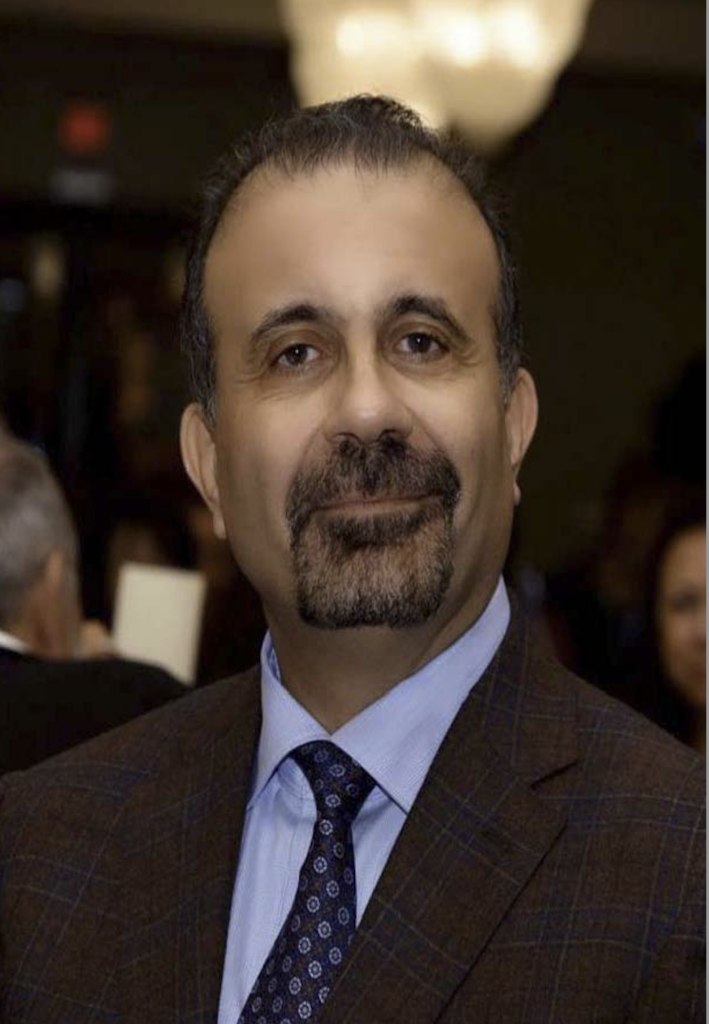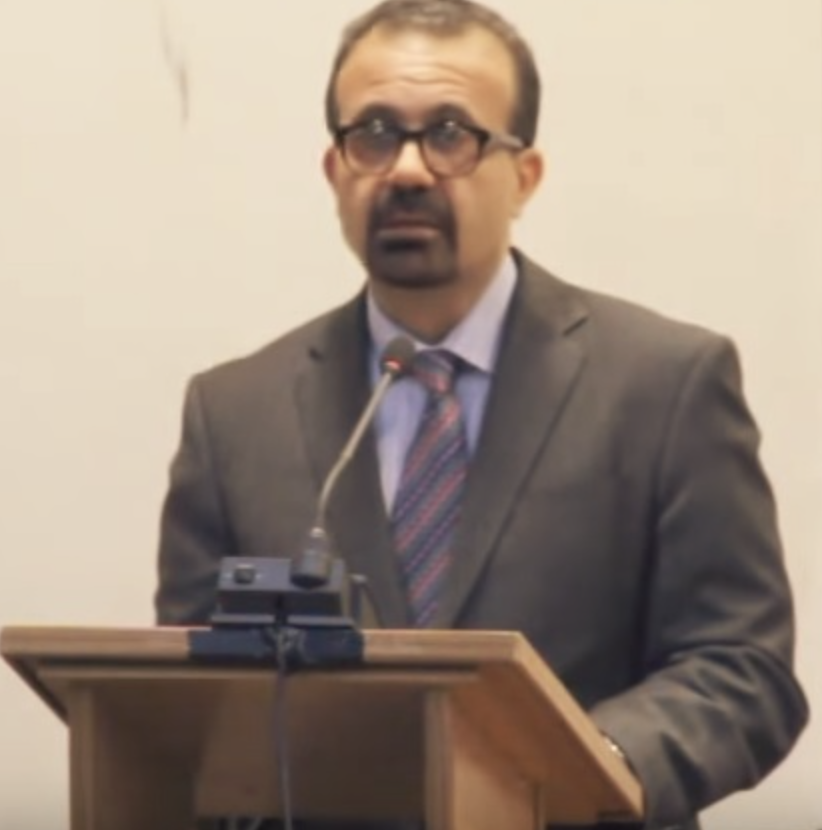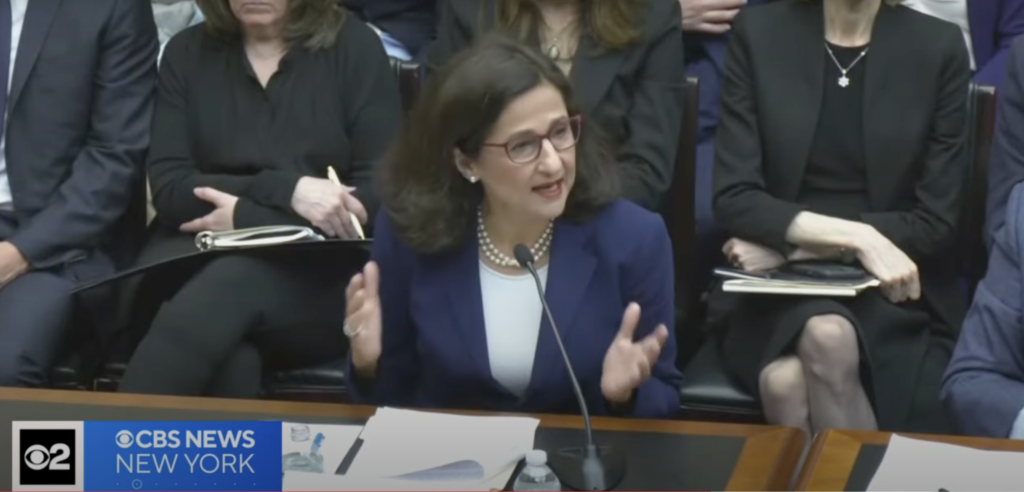Pathbreakers of Arab America—Joseph Massad

By: John Mason / Arab America Contributing Writer
This is the fifty-seventh of Arab America’s series on American pathbreakers of Arab descent. The series includes personalities from entertainment, business, sports, science, academia, journalism, and politics, among other areas. Our fifty-seventh pathbreaker is Joseph Massad, a Palestinian American and esteemed professor of Middle Eastern Studies, Modern Arab Politics, and Intellectual History at Columbia University. His strong pro-Palestinian perspective has become the object of criticism from many quarters, most of which derives from extreme pro-Israel supporters.
Arch-supporter of Palestinian identity and rights, Massad digs deep into the psyche of those who erase Palestine and Palestinians
Joseph Andoni Massad is a Palestinian born to a Christian family in Jordan in 1963. He received his BA and MA from the University of New Mexico. He then entered Columbia University, which awarded him a doctorate in political science in 1998.
According to Wikipedia’s series on Arab Americans, in the autumn of 1999, Massad began teaching at the same institution. “There, his views on the Israeli–Palestinian conflict and surrounding topics caused controversy.” Massad is a Professor of Modern Arab Politics and Intellectual History in the Department of Middle Eastern, South Asian, and African Studies. His academic work has focused on Palestinian, Jordanian, and Israeli nationalism. In 2009, he was awarded tenure at the university.
Joseph Massad teaches and writes about modern Arab politics and intellectual history. Columbia’s website describes him as focused on theories of identity and culture, including theories of nationalism, sexuality, race, and religion. He teaches courses on modern Arab culture, psychoanalysis of civilization and identity, gender and sexuality in the Arab world, and Palestinian-Israeli politics and society, with seminars on Nationalism in the Middle East as an Idea and Practice and on Orientalism and Islam.
Massad is the author of ‘Desiring Arabs’ (2007), which was awarded the Lionel Trilling Book Award; ‘The Persistence of the Palestinian Question: Essays on Zionism and the Palestinian Question’ (2006); and ‘Colonial Effects: The Making of National Identity in Jordan’(2001). His book ‘Daymumat al-Mas’alah al-Filastiniyyah’ was published by Dar Al-Adab in 2009, and La persistance de la question palestinienne’ was published by La Fabrique in 2009. Massad’s latest book is ‘Islam in Liberalism,’ University of Chicago Press, 2015.
In a 2022 article, ‘Jewish ‘self-determination’ or Jewish supremacy?’, Massad avers that Zionist ideologues have all along believed in their supremacy, which would ultimately lead to delegitimizing Palestinians’ rights to their land. He wrote, “Zionist ideologues did not argue for Jewish self-determination but rather sought to delegitimize the indigenous Palestinians’ right to it.” In effect, at the time of the formation of the state of Israel, it denied the rights of Palestinians.
Massad gets right to the point about how the Israeli right puts down the Palestinians. They do it through “The invocation of ‘Jewish self-determination in the land of the Palestinians [which] has been the major camouflage used to embellish the reigning regime of Jewish supremacy in Israel.” He calls such self-determination “foundational to the Zionist movement.” Massad suggests that in some quarters, Jews invoke the Holocaust to explain, even justify, “the ongoing Israeli violation of Palestinian human rights.”
Massad describes Israel’s 2018 Basic Law, which refers to the “land of Israel” rather than to the State of Israel, as the “homeland of the Jewish people.” This distinction, in effect, gives “Israeli Jewish colonial minority’s eternal control over the whole of historic Palestine.” He attributes this law as the culmination starting in 2009, with Israeli Prime Minister Benjamin Netanyahu’s rise to power. The 2018 Law “elevates Jews to a higher status than all other citizens.” This is the place and time Massad avers when Jewish self-determination transformed into Jewish supremacy.

Massad faces ‘fabrications and lies’ in the U.S. Congress and Columbia University over statements about October 7
In October 2023, Massad wrote an essay in ‘Electronic Intifada’ on the Hamas attacks on Israel in which he praised these attacks as “awesome”, “astounding” and “incredible” and that they were a “stunning victory”. The ‘Jerusalem Post, Business Insider,’ the ADL, and ‘The New Arab’ characterized the essay as supporting the attacks. This led to a petition to Columbia to remove him from his post, signed by over 50,000 people. The Middle East Studies Association defended him. However, in a hearing before the U.S. House Committee on Education on April 2024, the president of Columbia said that Massad had been “spoken to” regarding this essay. Massad claimed that the University did not discipline him.
On 17 April, Minouche Shafik, the president of Columbia University, appeared before the House Committee on Education and the Workforce, the latest episode in efforts by members of Congress to shut down criticism of Israel on campuses by falsely accusing students, professors, and administrators of anti-Semitism. ‘Electronic Intifada’ noted, “Three professors were singled out for vitriol and smears: Katherine Franke, Mohamed Abdou, and world-renowned scholar Joseph Massad.” However, rather than defending her faculty’s academic freedom from what the American Association of University Professors is calling “a new strain of McCarthyism in the US,” Shafik “threw them under the bus.”
Massad issued the following statement in response to media inquiries:
“The members of Congress who interrogated President Shafik deliberately misrepresented my article published on 8 October 2023, when Representative Walberg claimed that I “prais[ed] ‘the innovative Palestinian resistance,’ for attacking Israel and glorifying Hamas’s slaughter of nearly 1200 Jews as, and I quote again, ‘awesome, astonishing, astounding and incredible.’” I certainly said nothing of the sort.” Massad continued, making five points in defense of his statement. They concern the “historic event” of Hamas’ attack on October 7.”

Massad rejected allegations against him that he gave “support of terrorism” and engaged in “harassing Jewish students” and found that Columbia President Shafik and the trustees should have defended him against accusations that he harassed his students and supported terrorism. Shafik noted that “if it were up to her, Massad would never have gotten tenure.” Most of his colleagues and students support his right to free speech.
Joseph Massad has spent most of his adult life as an academic searching for answers to questions about Arab identity, including gender and sexuality in the Arab world. His contribution to the understanding of Palestinian-Israeli politics and society is profound. While he is deeply involved in his own Palestinian identity and strongly supportive of Palestinians and their right to their own identity and space, Massad is dispassionate in his analysis of the Israeli-Palestinian conflict.
Sources:
–“Joseph Massad,” Wikipedia Series on Arab Americans, 2024
–“Joseph Massad,” Columbia University website presentation of faculty, 2024
–“Jewish ‘self-determination’ or Jewish supremacy?”, Joseph Massad, Middle East Eye, 11/22/2022
–“Israeli Professor Fears Israel-Palestine Conflict has Morphed into a ‘One-State, Three-tiered Classes’ Solution,” Arab America, 11/30/2022
–“Joseph Massad responds to fabrications and lies about him in Congress, Ali Abunimah Lobby Watch, The Electronic Intifada, 4/17/2024
John Mason, Ph.D., focuses on Arab culture, society, and history and is the author of LEFT-HANDED IN AN ISLAMIC WORLD: An Anthropologist’s Journey into the Middle East, New Academia Publishing, 2017. He has taught at the University of Libya, Benghazi, Rennselaer Polytechnic Institute in New York, and the American University in Cairo; John served with the United Nations in Tripoli, Libya, and consulted extensively on socioeconomic and political development for USAID and the World Bank in 65 countries.
The views and opinions expressed in this article are those of the author and do not necessarily reflect the position of Arab America. The reproduction of this article is permissible with proper credit to Arab America and the author.
Check out our Blog here!








